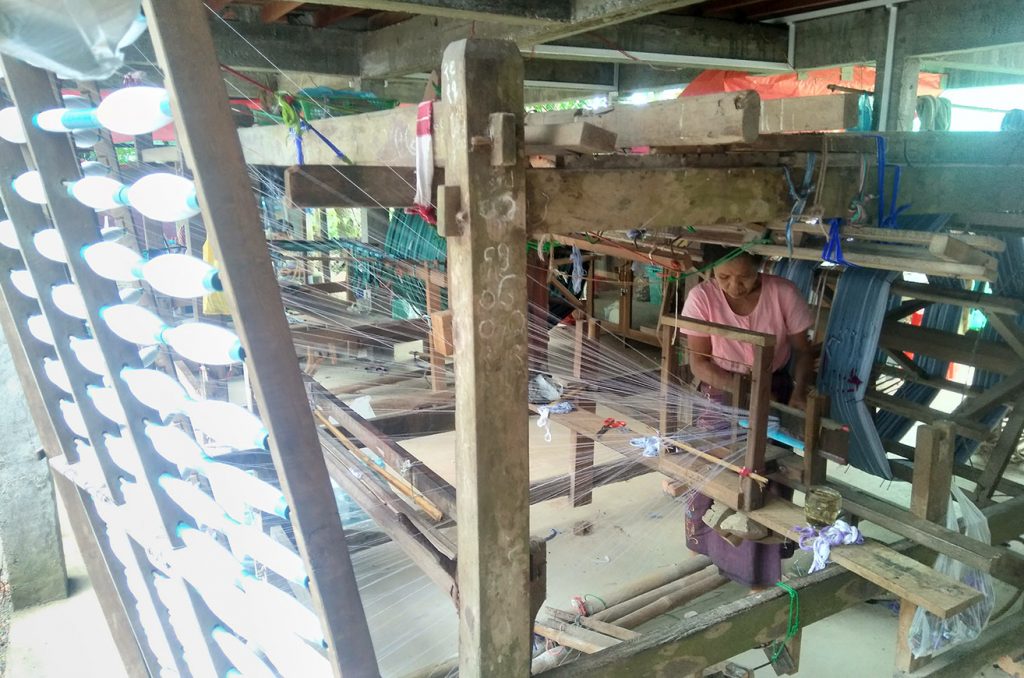24 July
With a long-time closure of Myanmar-India border including Tamu-Moreh border and Reekhorda-Zokhawthar border caused by spreading of the coronavirus across the country, the weaving businesses were suspended for lack of raw materials in the India imported market, according to the weaving entrepreneurs from Kalay Township.
There are more than 1,500 manageable-scale weaving businesses in Kalay township. These businesses are weaving mostly the Chin traditional clothes in Haka, Tiddim, Falam, Mezoh and Zohton. These businesses rely upon Indian cotton produced and imported from India through India border. The weaving businesses are being faced with a lack of raw cotton after restricting the crossing of Myanmar-India border because of COVID-19 starting from March.
“The India cotton costs K29,000 per pack which contains 2 visses previously. Although the price of India cotton has increased to K35,000 per pack, it could not be bought easily in the market. The local weavers are using only India cotton because it is compact and good for weaving. The local people in Kalay township are weaving the cloth in their house to earn their family income,” said Daw Nilar Oo, a local weaver from Kalay township.
Before the pandemic period, the local people were earning their livelihood doing the weaving businesses in Kalay township. Therefore, it can create job opportunities for local women who help earn their household income. The clothes from Kaly township are exported to India as well as to other countries. The clothes are reportedly sent as Chin traditional wears to Yangon, Mandalay and other regions.
Chindwinthar (Translated by Hay Mar)


